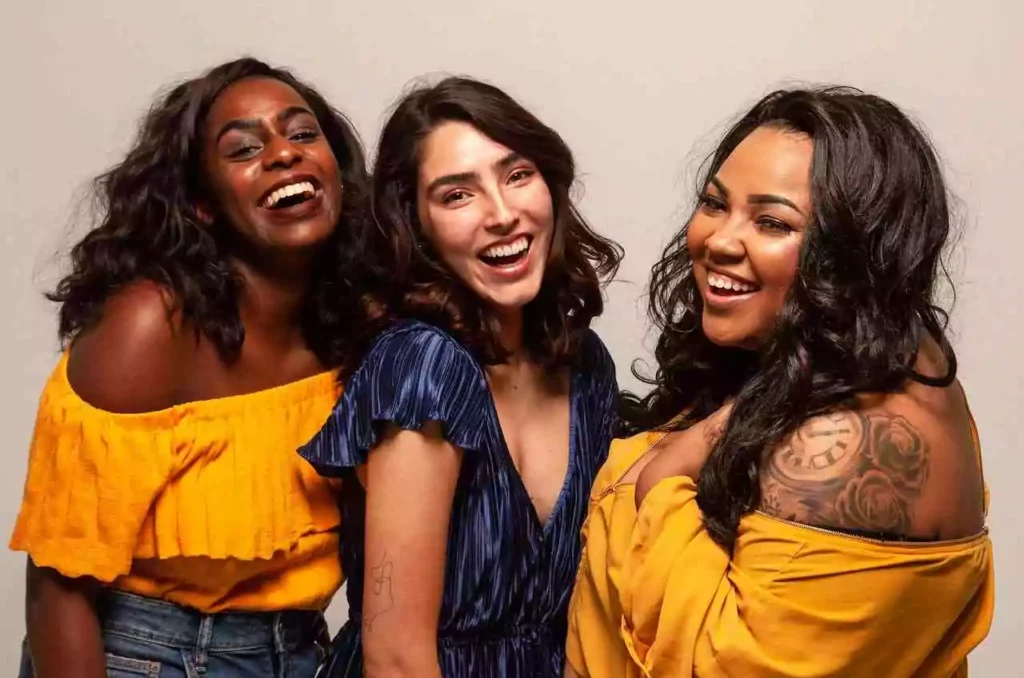Truth & Goodness
Why Does a Child Need a Father? Science Has No Doubt Today
08 July 2025

Historically, women have wielded immense power, often from behind the scenes, utilizing their wisdom, cunning, and intelligence. The fall of Troy was for Helen, and through Mary, the biblical act of salvation was realized. In the 21st century, a woman reigned as the most powerful monarch, and legend has it that one even ascended to the papacy. Yet, for centuries, their voices were unheard, though not silent. Time and again, they have proven their worth, elbowing their way through and fighting for their rightful place in a patriarchal world.
In a striking example of delayed progress, modern Switzerland, often hailed as a paradigm of democracy, granted women the right to vote only in 1971, with the last canton following nearly two decades later. In a history predominantly penned by men, strong women have been more of an intriguing diversion than equal protagonists in pivotal events. It is only in the 21st century that the chance for genuine gender equality emerges. But what does true equality entail?
The image of a nursing mother, a tableau of profound affection and tenderness, is among the most moving. A newborn, in absolute trust, clings to the mother, finding in her both sustenance and closeness. This same woman, in a moment, switches roles to tidy the house, cook for the family, do the laundry, and greet her husband with cheerful conversation. Yet, she knows when to retreat discreetly, ensuring the children are quiet so the father can rest.
She embodies the idealized mother, wife, and lover. This exaggerated, almost surreal description, though, mirrors a cultural stereotype that, not so long ago, was widely accepted and still lingers in the minds of those men who, while sipping vodka at a table of self-proclaimed “lords of the world,” scoff at the notion of women’s rights, grumbling, “Why do they need equality?”
In advanced societies of the 21st century, the expectation for women to manage time around every household need, husband included, is ostensibly outdated. Yet, the subtle objectification of women lingers, reshaping itself. Research reveals an instinctive bias: agency is male, communal nature is female. Men should excel and command; women are to be nurturing and yielding. The “masculine” evokes competition, and the “feminine” suggests beauty and compliance. History, largely male-authored, has etched a social order challenging to dismantle. This order is patriarchy, rooted in deep-seated male apprehension.

What fuels this anxiety? Psychoanalysis points to early child-mother dynamics, especially around the mother’s breast – a source of desire and frustration. This breeds the Freudian Oedipus complex: a boy’s unconscious longing for his mother, countered by fear of paternal retribution. Healthy development resolves this, pivoting a boy’s identification from mother to father, and solidifying a male identity.
Choice in partners, while partly driven by unconscious biological signals of health and fertility, also mirrors early maternal impressions. The familiar saying – partners resemble our opposite-sex parent – finds its grounding here. Deviations from this maternal archetype trigger fear, manifesting in aggression. Women displaying ambition or confidence are seen as threats, prompting defensive or evasive responses. Historical suppression of female assertiveness – through voting, education, or employment restrictions – has enforced economic reliance on men. At its extreme, this patriarchal mindset leads to overt aggression, exemplified by recent events in Iran, where a woman’s life was lost over a refusal to conform to strict dress codes.
Long legs, an unrealistically slim waist, rosy cheeks, blonde hair, a beautiful smile, and white teeth. The epitome of womanhood, personified by Pamela Anderson running along the beach, preferably in slow-motion. Desired by men, envied by women. Mattel’s product taught young girls that such was the benchmark to earn love.
Greta Gerwig’s film opens to the grand, somewhat foreboding strains of Richard Strauss. Little girls destroy baby dolls, gazing in awe at the iconic Barbie. The scene’s symbolism is clear: future women are not mothers but sex symbols, arousing male desire only to mock it. The accompanying Ken, an infantile figure with the soul of a six-year-old and Apollo’s physique, is merely a prop. The film’s world is dominated by women, who establish a utopia fulfilling their needs, relegating men to mere accessories. “Finally, someone put these buffoons in their place!,” one might think with a feminist fervor, but neither Barbie nor Ken are entirely happy.
We recommend: Gender Identity in Children and Adolescents: Understanding the Challenges and Explorations
Barbie faces the banality of life, a consequence of merging two worlds: the created and the real. In her fictitious world, she undergoes an existential crisis, drifting from her superficial well-being. Entering the human world, she discovers a brutal reality, offering something absent in her utopia.
Ken, alongside Barbie, experiences the opposite. Objectified in the pink world, he finds fulfillment of his desires and impulses in reality. His burgeoning desires take control, and his fate, swinging like a pendulum, changes drastically. Ken, as a victim of scorned feelings, sheds his sense of worthlessness, asserting himself by taking control of the Mattel world. He introduces patriarchy, mirroring the order in the real world. Yet, power brings no solace, deepening his wound, for now, not only he but also his beloved suffers. The male soul seeks to drown its pain in a desire for blood, culminating in a senselessly ignited battle. The film culminates in a stark portrayal of two “walking corpses,” male and female, emblematic victims of a profound, unmet need: love.
The quest for equality is as intricate as the concept itself: it is not about splitting things down the middle, but about ensuring that everyone gets what they need and deserve. At the heart of a harmonious society lies justice. True equality, then, is about providing equal opportunities for self-realization to both women and men. But even in a hypothetical social vacuum with equitable access to resources, a utopia remains elusive. Human nature, fraught with impulsiveness, fear, and disorderly desires, impedes such perfection.
Carl Jung, the Swiss psychoanalyst, offers a solution. He suggests that acknowledging and integrating our masculine and feminine aspects, our Animus and Anima, can lead to a form of individual perfection, true self-realization. A person who is complete and balanced, even with their imperfections, is more likely to achieve Agape – the highest form of love and understanding towards others. Thus, Agape might just be the ultimate expression of equality between men and women.
Translation: Klaudia Tarasiewicz